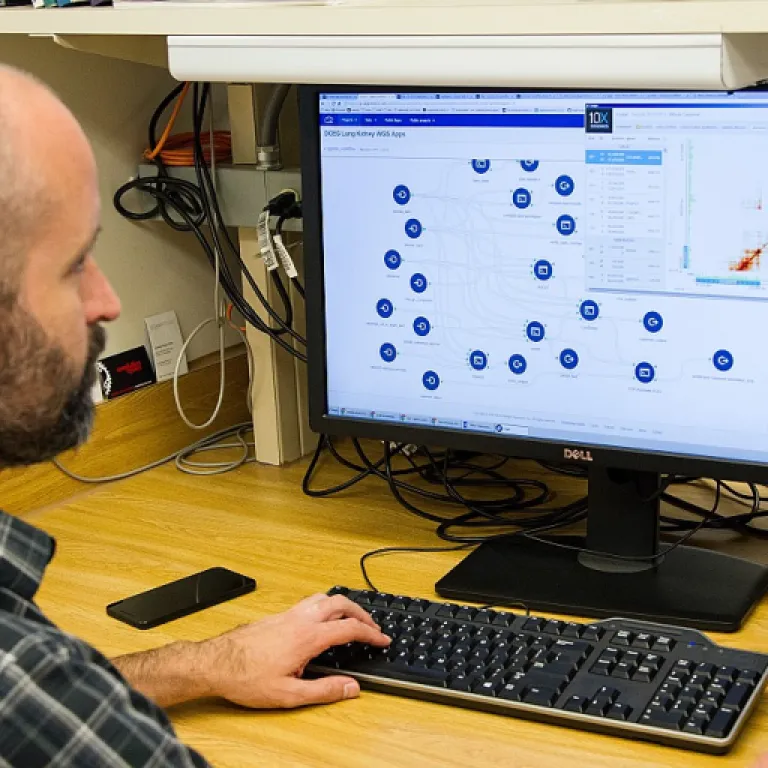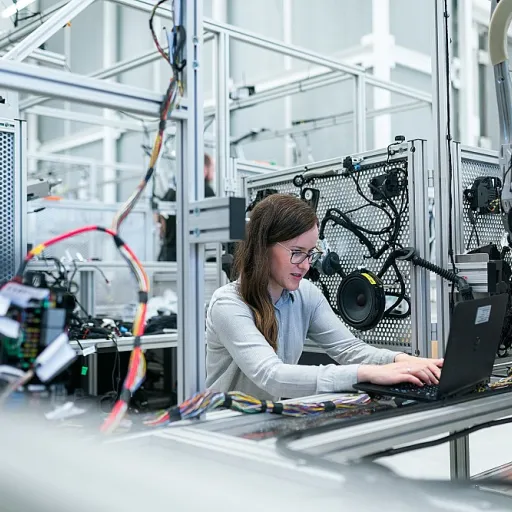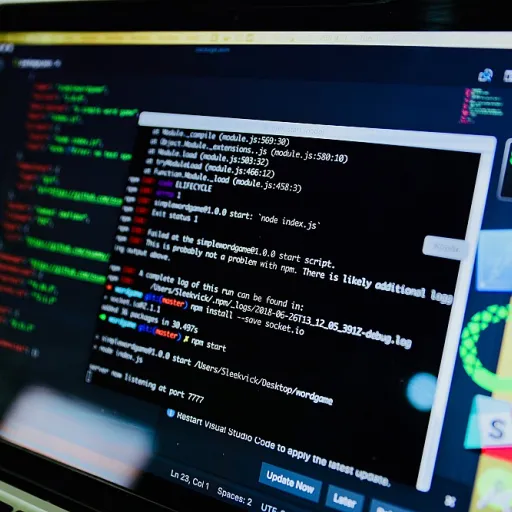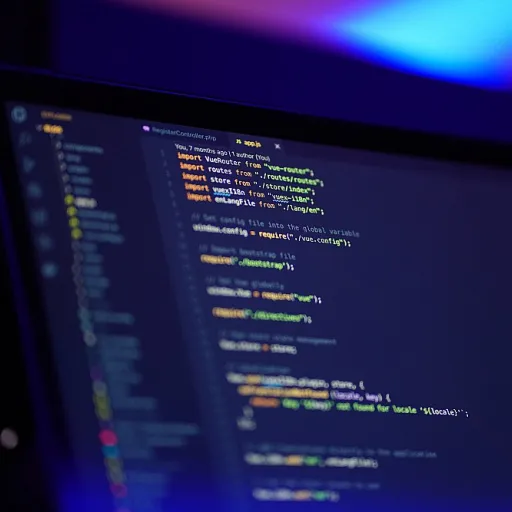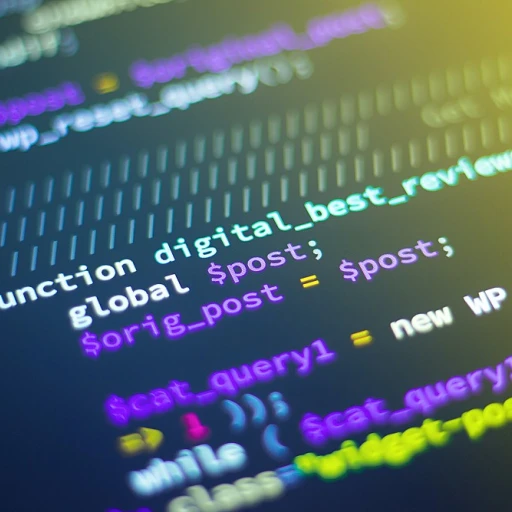
The Current State of Cybersecurity
Understanding the Current Landscape of Cybersecurity
In today's digital age, cybersecurity stands as a critical pillar for safeguarding sensitive data and ensuring the integrity of systems. With the increasing sophistication of cyber threats, the role of cybersecurity professionals has never been more vital. These experts are tasked with the crucial job of threat detection and mitigation, working tirelessly to protect against potential attacks that could compromise security.
Cybersecurity strategies have evolved significantly over the years, adapting to the ever-changing landscape of cyber threats. From routine tasks like log analysis to more complex threat detection, the field demands a high level of expertise and constant vigilance. Cybersecurity analysts and experts are continually developing new methods to counteract these threats, ensuring that systems remain secure in real time.
Despite the advancements, the current state of cybersecurity is not without its challenges. The sheer volume of data and the complexity of modern systems can overwhelm even the most seasoned professionals. This is where the potential of artificial intelligence comes into play, offering new tools and techniques to enhance cyber defense. However, the integration of AI into cybersecurity roles raises questions about ethical considerations and the balance between machine learning and human oversight.
As we explore the potential of AI in cybersecurity, it's essential to consider how these technologies might impact cybersecurity careers. Will AI replace cybersecurity jobs, or will it augment the work of human cybersecurity experts? These are critical questions that will shape the future of the field. For a deeper understanding of how software tools are evolving to meet these challenges, you might find it insightful to explore a deep dive into software monitoring tools.
AI's Role in Enhancing Cyber Defense
AI's Transformative Impact on Cyber Defense
The integration of artificial intelligence into cybersecurity is reshaping how we approach cyber threats. AI's ability to process vast amounts of data in real time is a game-changer for threat detection and response. Unlike traditional systems that rely heavily on human oversight, AI can analyze complex data sets and identify patterns that might indicate a potential attack. This capability allows cybersecurity professionals to focus on more strategic tasks rather than routine log analysis.
Machine learning, a subset of AI, plays a crucial role in enhancing security measures. By learning from previous attacks, AI systems can predict and prevent future threats more effectively. This predictive power is essential in a landscape where cyber threats are constantly evolving. AI's role in cybersecurity is not just about replacing human judgment but augmenting it, providing analysts with insights that were previously unattainable.
Despite the potential of AI, it is important to acknowledge the need for human cybersecurity experts. Human oversight remains critical to ensure that AI systems operate ethically and effectively. Cybersecurity professionals are essential in interpreting AI-generated data and making informed decisions. As AI continues to evolve, it will create new cybersecurity roles and redefine existing ones, offering exciting opportunities for those in the field.
For more insights on how technology is transforming various sectors, check out breaking developments in Arctic transit.
Potential Benefits of AI in Cybersecurity
Unlocking New Potential with AI
Artificial intelligence is rapidly transforming the landscape of cybersecurity, offering a plethora of benefits that can enhance the way we protect our digital assets. One of the most significant advantages is the ability of AI to process vast amounts of data at unprecedented speeds. This capability is crucial for threat detection, as it allows systems to identify and respond to cyber threats in real time, far quicker than any human could manage.
AI's machine learning algorithms can analyze data sets to recognize patterns and anomalies that may indicate a security breach. This level of detection is not only faster but also more accurate, reducing the likelihood of false positives that can overwhelm cybersecurity professionals. By automating routine tasks such as log analysis, AI frees up human analysts to focus on more complex security challenges, enhancing overall cybersecurity strategies.
Enhancing Human Capabilities
While there are concerns that AI might replace cybersecurity jobs, the reality is that AI is more likely to augment human capabilities rather than replace them. Cybersecurity experts can leverage AI tools to improve their decision-making processes, allowing for more informed human judgment in the face of sophisticated cyber attacks. This collaboration between human oversight and AI technology can lead to more robust security systems.
Moreover, AI can help in the development of more proactive cybersecurity measures. By continuously learning from new data, AI systems can anticipate potential threats before they materialize, providing a strategic advantage in the ever-evolving battle against cyber threats. This proactive approach is essential for maintaining the integrity of security systems in a world where threats are constantly evolving.
For those interested in exploring the broader implications of AI and other emerging technologies, consider exploring the potential of composable technology as it relates to cybersecurity and beyond.
Challenges and Risks of AI in Cybersecurity
Challenges in Implementing AI for Cybersecurity
While artificial intelligence holds immense potential for enhancing cybersecurity, it also presents several challenges that need to be addressed. One of the primary concerns is the reliability of AI systems in threat detection. AI models rely heavily on data sets to learn and make decisions. If these data sets are incomplete or biased, the AI's ability to accurately identify cyber threats could be compromised. This raises questions about the effectiveness of AI in real-time threat detection and the potential for false positives or negatives.
Ethical Considerations and Human Oversight
Another significant challenge is the ethical implications of deploying AI in cybersecurity. The use of AI in this field requires careful consideration of privacy and data protection. Cybersecurity professionals must ensure that AI systems do not infringe on individual privacy rights while performing their tasks. Moreover, human oversight remains crucial. Despite AI's capabilities, human judgment is essential to interpret AI-generated insights and make informed decisions. Cybersecurity experts must work alongside AI to ensure that ethical standards are maintained.
Impact on Cybersecurity Jobs and Roles
The integration of AI into cybersecurity strategies also impacts the job market. While AI can automate routine tasks such as log analysis, it does not replace cybersecurity professionals. Instead, it shifts the focus of cybersecurity jobs towards more strategic roles. Cybersecurity analysts and experts will need to adapt to new technologies and develop skills in AI and machine learning to remain relevant. This evolution in cybersecurity careers highlights the importance of continuous learning and adaptation in the face of technological advancements.
Risks of AI in Cybersecurity
AI systems themselves can become targets for cyber attacks. As AI becomes more prevalent in cybersecurity, attackers may develop sophisticated methods to exploit vulnerabilities in AI systems. This creates a new layer of threats that cybersecurity professionals must address. Ensuring the security of AI systems is critical to maintaining the integrity of cybersecurity measures.
Case Studies: AI in Action
AI-Powered Threat Detection in Action
In recent years, artificial intelligence has been making significant strides in the field of cybersecurity, particularly in threat detection. By analyzing vast data sets in real time, AI systems can identify potential threats more quickly and accurately than traditional methods. This capability is crucial for cybersecurity professionals who need to respond to cyber attacks swiftly to mitigate damage.
Case Study: AI in Financial Institutions
Financial institutions are prime targets for cyber threats due to the sensitive data they handle. Many banks have integrated AI into their cybersecurity strategies to enhance threat detection and response. AI systems can monitor transactions and user behavior patterns, flagging anomalies that might indicate fraudulent activity. This proactive approach allows human cybersecurity experts to focus on more complex tasks, reducing the time spent on routine log analysis.
AI and Human Oversight in Healthcare
The healthcare sector has also seen the benefits of AI in cybersecurity. With the increasing digitization of patient records, the risk of data breaches has grown. AI systems help in safeguarding this data by continuously monitoring for unusual access patterns. However, human judgment remains essential, as AI can sometimes misinterpret legitimate access as a threat. This collaboration between AI and human oversight ensures a balanced approach to security.
Challenges in Implementation
Despite the potential of AI in enhancing cybersecurity, its implementation is not without challenges. Ethical considerations, such as privacy concerns and the risk of AI systems being manipulated by malicious actors, must be addressed. Additionally, there is a need for cybersecurity professionals to upskill and adapt to new roles that AI technologies create. While AI can handle routine tasks, human analysts are indispensable for strategic decision-making and ethical evaluations.
The Future of AI in Cybersecurity
Emerging Trends in AI-Driven Cybersecurity
The future of AI in cybersecurity is poised to transform how we approach security challenges. As cyber threats evolve, so too must our strategies for combating them. AI's ability to process vast amounts of data in real time allows for more effective threat detection and response. This capability is crucial as cyber attacks become more sophisticated and frequent.
Integration of AI with Human Expertise
While AI offers significant advantages, it is unlikely to replace cybersecurity professionals entirely. Instead, AI will augment human capabilities, allowing experts to focus on more complex tasks that require human judgment. Routine tasks like log analysis and initial threat detection can be handled by AI, freeing up time for cybersecurity experts to address more nuanced threats.
Ethical Considerations and Human Oversight
As AI systems become more integrated into cybersecurity roles, ethical considerations will play a crucial role. Ensuring that AI operates within ethical boundaries requires human oversight to prevent unintended consequences. Cybersecurity analysts must work alongside AI to maintain a balance between automated processes and human intervention.
Potential Impact on Cybersecurity Careers
The integration of AI in cybersecurity will inevitably impact job roles within the industry. While some routine tasks may be automated, new opportunities will arise for professionals skilled in AI and machine learning. Cybersecurity careers will evolve, with a growing demand for experts who can manage and interpret AI-driven systems.
Continuous Learning and Adaptation
AI's role in cybersecurity is not static; it requires continuous learning and adaptation. As cyber threats change, AI systems must be updated with new data sets to remain effective. This ongoing process ensures that AI remains a valuable tool in the fight against cyber threats, working alongside human cybersecurity professionals to protect our digital landscape.

